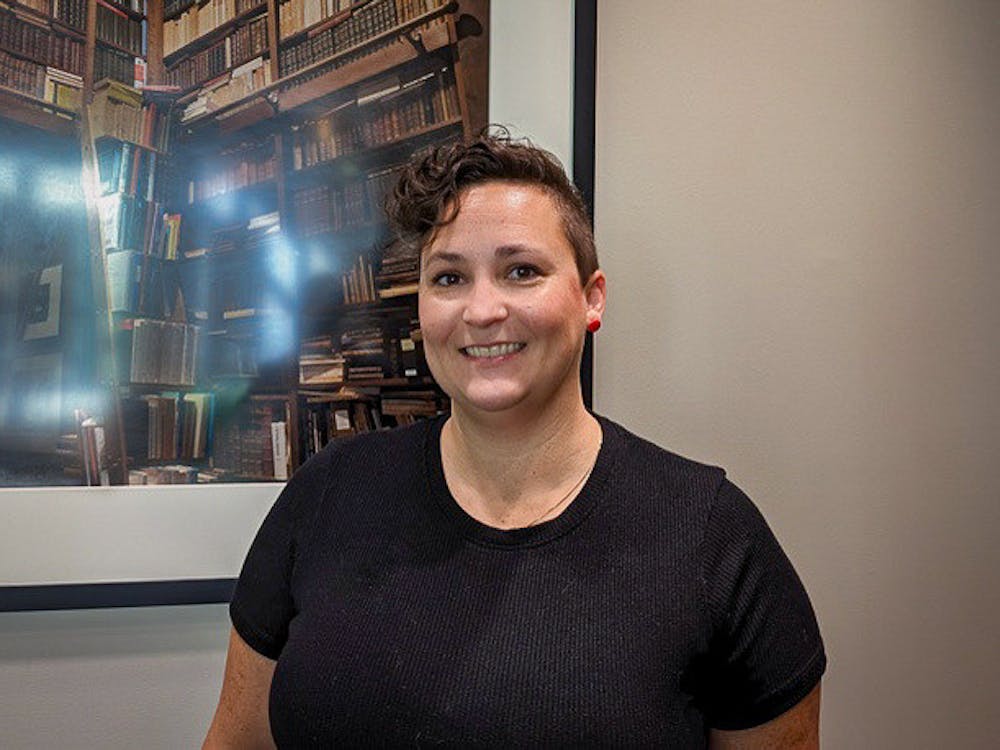Katie Carey is the university archivist within the University’s Special Collections of The Sheridan Libraries. Carey manages the institution’s records management program as well as a team of archivists that processes collections in the University archives and special collections. In an interview with The News-Letter, Carey discussed the role of the archives within the University and why she became an archivist.
The News-Letter: The role of a university archivist is not widely recognized by the students. Could you elaborate on your responsibilities and duties in this profession?
Katie Carey: As a university archivist, I am focused on the collecting of University history. So that entails talking to faculty members — about their papers, donating their papers to the library and getting a record of the intellectual work of our faculty since the beginning of Hopkins history. That's one aspect. We also collect materials from alumni, whether that's memorabilia or photos, or like I mentioned before, student organization records. Another aspect of university archives is records management. We have things like the records of the Office of the President, records of the provost and records of the academic departments. You can research the history of the [Department of History], if you'd like. And we also handle the records for the graduate schools — for [the School of Advanced International Studies] and Carey Business School.
N-L: What motivated you to become a university archivist?
KC: I went to library school. While I was there, I got a job in the university archives, and I loved it. I loved the fact that I got to research history. So answering reference questions for people. You just get to research a variety of topics, which is really fun to me. And I love working on university campuses because I get to interact with undergraduates, graduate students and faculty members. [There are] always events and something going on, and I think university history is really important. It is the history of, you know, the intellectual life of people here in the U.S. and college. And all of university history obviously intersects with any type of U.S. history or even international history as well. So I find that really interesting.
N-L: Why is this role important to both the University and the student body?
KC: It's important because we want to preserve our history, and the administration has kind of made a commitment to that by supporting the reference management program and by creating things like the Hopkins Retrospective program that really focuses on [the University’s] history more intensely. Also, I think it's important for students to know the history of the institution that they go to, whether that is something to be proud of or something to delve into and feel uncomfortable about and learn about. And I think it's important to preserve the history of the students that come here. Students do all sorts of academic and intellectual and scholarly work. That is stellar. But, they also were really involved in the community of Baltimore and the community of Hopkins, working on all sorts of interesting projects.
N-L: What initiatives or events do you have planned to encourage students to participate?
KC: The Hopkins Retrospective program is really focused on engaging with students, and they will be having a table at [Family] Weekend. All the events surrounding [the] Hopkins Retrospective will happen at the table. There will be some games that you can play about [the University’s] history, and we'll also have some merch to give away.
N-L: Do the students have access to the archives?
KC: Oh, yeah. you definitely do. You're welcome to visit at any time and come and look at stuff. And they can come to the Special Collections reading room that's in [Brody Learning Commons]. Also, they can donate their records. We have yearbooks in the reading room that you can just show up and look at if you'd like, and they're also online and digitized. Same with photos and oral histories and some other university publications.
N-L: Lastly, [what are] your future plans? Do you have any interesting projects planned?
KC: Overall, we’ll make sure we get the records of the academic departments that we don't have a history of. But something that's upcoming is a project that we'll be working on with our team of student workers to produce something for the 60th anniversary of the opening of this library. It's to celebrate the opening of the library [in] 1964 and also a goodbye because it's going to be renovated.
Editor’s note, 2023: The article was updated to remove a portion of the interview mistakenly included.
The News-Letter regrets this error.





